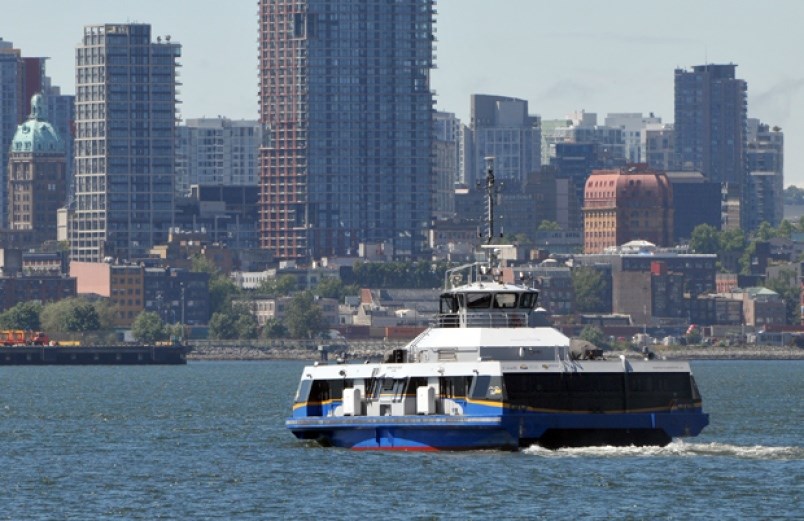Anyone hoping to cross Burrard Inlet by SeaBus will have to do it before evening falls.
As part of unprecedented cuts to service, TransLink has announced the cancellation of several hours of evening and late-night SeaBus service.
Starting Wednesday, the last SeaBus will leave Lonsdale Quay at 7:30 p.m. and the last SeaBus will leave Waterfront Station at 7:45 p.m.
Prior to the pandemic, the last SeaBus didn't depart until after 1 a.m.
Two weeks ago, TransLink abandoned its previous schedule that had SeaBus sailings leaving every 10 or 15 minutes and switched to a 30-minute schedule.
Since mid-March, SeaBus ridership has been down 90 per cent, according to TransLink.
The move to axe nighttime SeaBus sailings is among wide-ranging cuts to service announced Monday by TransLink among cost-cutting measures.
Among those, the new 22 Willingdon Express, which was to connect North Vancouver's Phibbs Exchange with the Metrotown SkyTrain station is being cancelled as of Friday.
More cuts to service are expected soon, including service to North Shore bus routes.
According to TransLink, beginning in May, service on another 47 bus routes will be suspended and service frequency will be reduced on many remaining routes.
Among the North Shore bus routes TransLink expects to suspend are the 231 Harbourside, 241 Upper Lonsdale/Downtown, 247 Grouse Mountain/Downtown, 251 Queens, and 252 Inglewood, 258 West Vancouver Express and 262 Caulfeild/Lions Bay.
According to TransLink, it is prioritizing routes that service hospitals and other health facilities. Routes being suspended are those that either duplicate other routes or are in areas with low ridership.
As a result of the cutbacks, the transit agency announced Monday it is temporarily laying off 1,492 employees.
TransLink has been hard hit by the COVID-19 pandemic. As many people work from home and try to avoid public transit, ridership has plummeted 83 per cent.
A significant drop in ridership across the board, the temporary suspension of fare collection on buses, as well as a drop in fuel tax revenue has meant that revenues for TransLink overall have dropped dramatically.
TransLink has been losing $75 million per month.
TransLink CEO Kevin Desmond said Monday the transit organization has done its best to cut costs through other means but has run out of options.
Once the cuts are made, TransLink anticipates it will have the capacity to move only about 20 per cent of normal ridership levels.
In its press release, TransLink indicated it expects the reductions in service to be in place until early fall, stating "TransLink and the province of B.C. have been working closely to ensure that funding is available to allow TransLink to reverse layoffs and return to near-regular operations in time for back-to-school in September."



